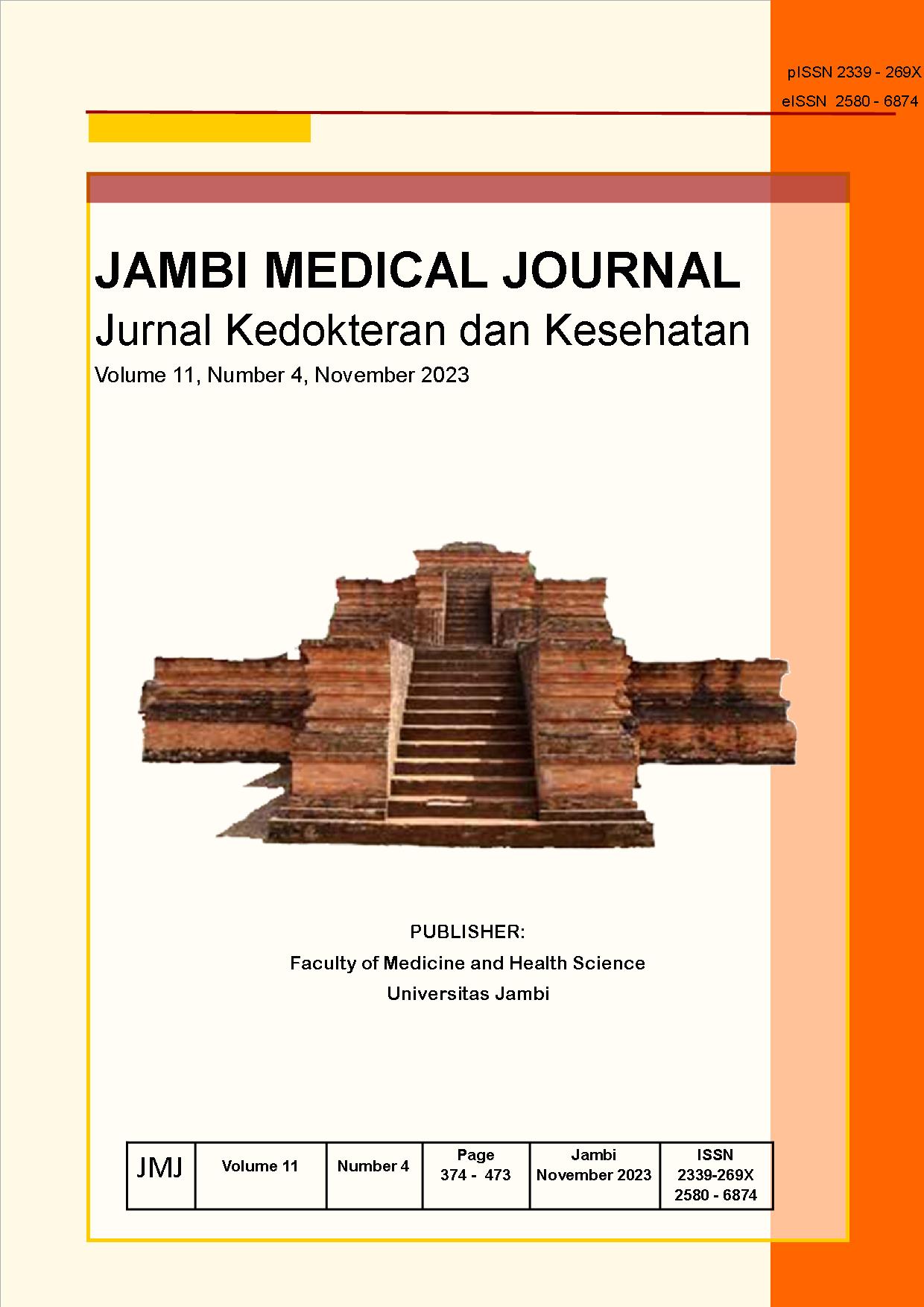Chronic Renal Failure in a Post-Kidney Transplant Patient with Kidney Graft Hydronephrosis and Renal Anemia
DOI:
https://doi.org/10.22437/jmj.v11i4.28890Abstract
ABSTRACTÂ
A kidney transplant is the ideal option for End Stage Renal Disease (ESRD). A successful kidney transplant will improve the excretory function of the kidney so that it can return the quality of life for patients with Chronic Kidney Disease (CKD) to normal. However, in some cases of transplant recipients, the grafted kidney does not function optimally due to several complications. Post-kidney transplant complications may occur, which are classified into two groups, namely surgical and medical complications. Cases of obstruction characterized by hydronephrosis of the graft kidney, a post-transplant surgical complication. The most common location is where the ureter implants into the bladder, namely the distal 1/3 ureter. The most important medical or non-surgical complications are rejection or rejection reactions ranging from acute, hyperacute and chronic. Chronic rejection is the gradual loss of function of the transplanted organ over several months to years after the organ is functioning normally. Chronic rejection is difficult to treat where the use of immunosuppression is of little use because the damage has already occurred, so the patient again needs another renal replacement therapy, namely hemodialysis. The following is a case report of a patient after a kidney transplant six years ago, experienced decreased kidney function again and had to receive hemodialysis therapy due to a kidney graft/hydronephrosis graft.











